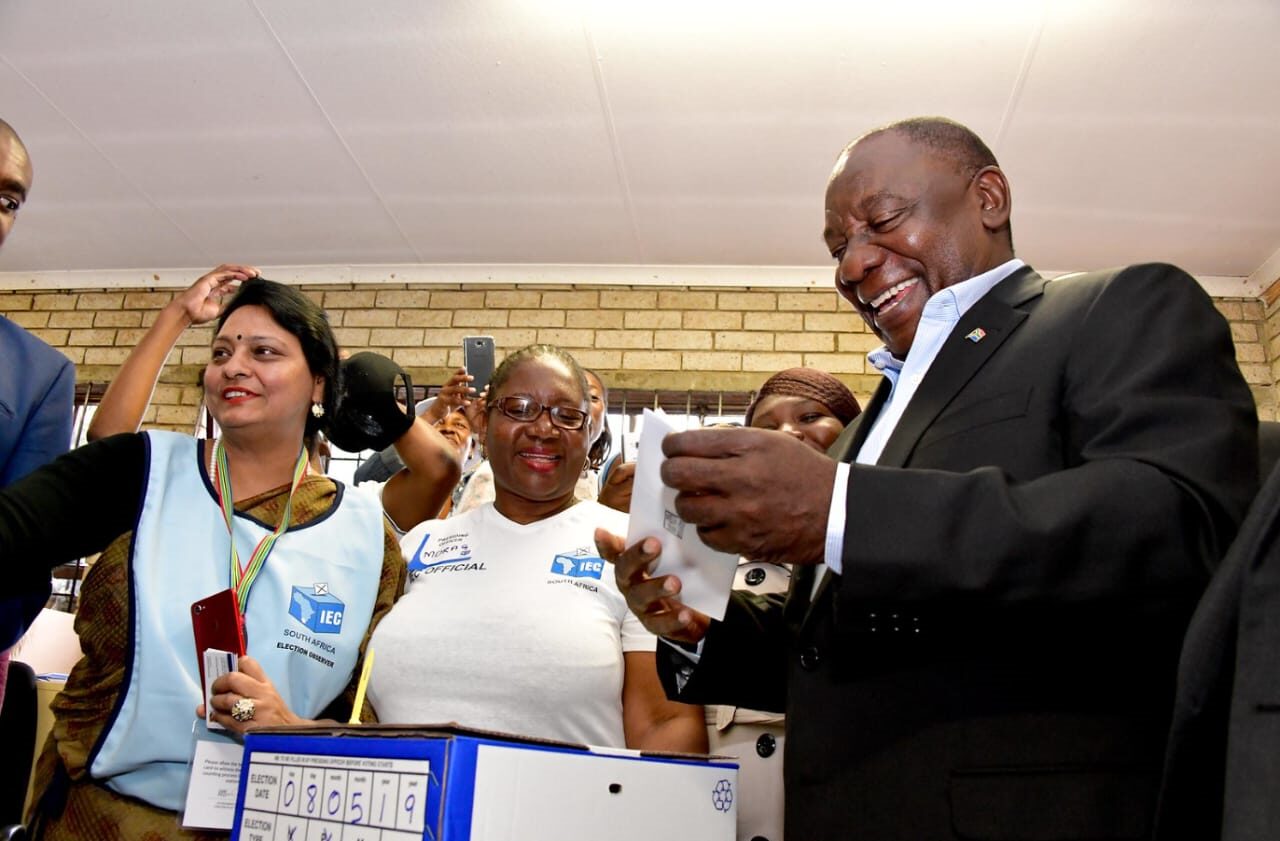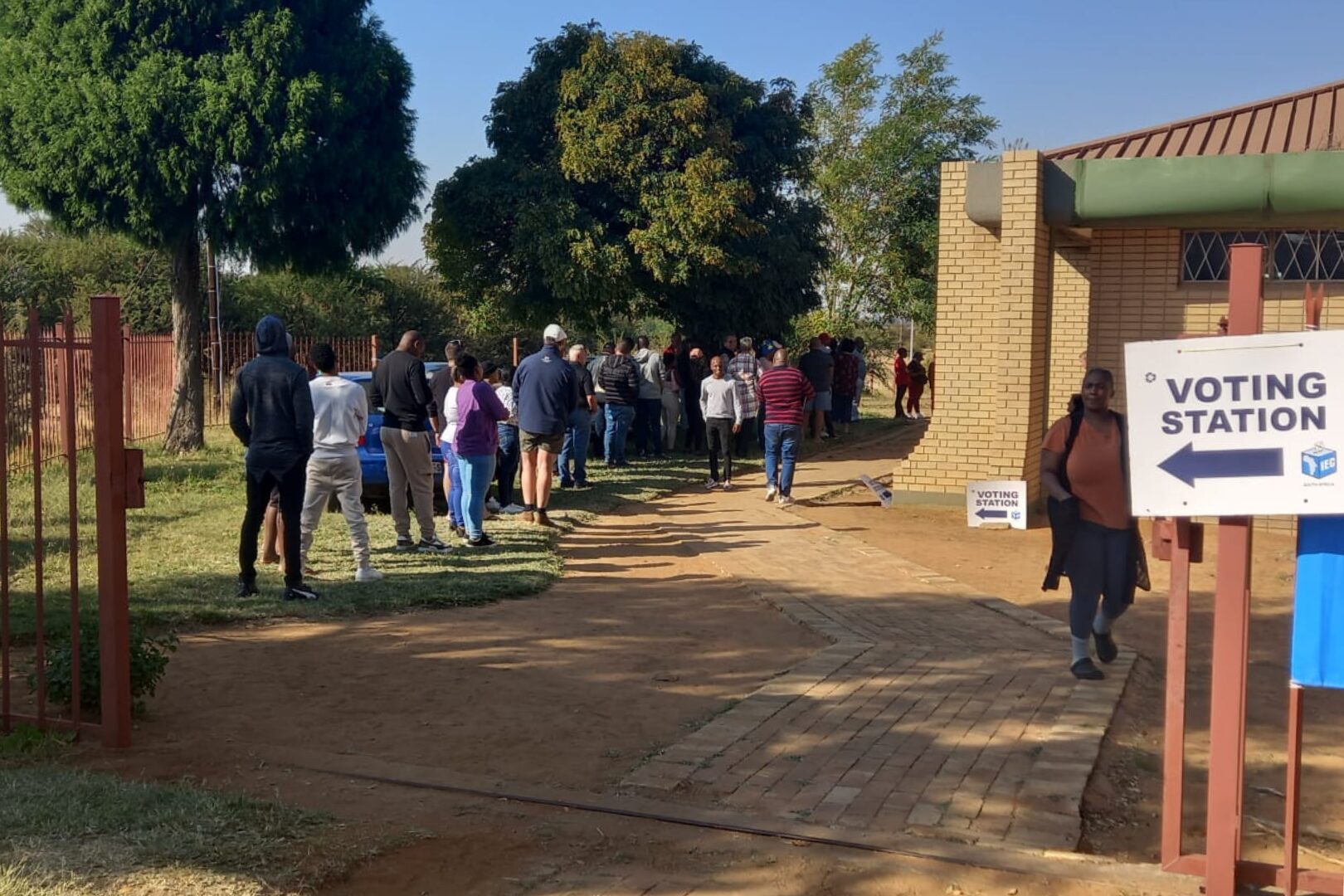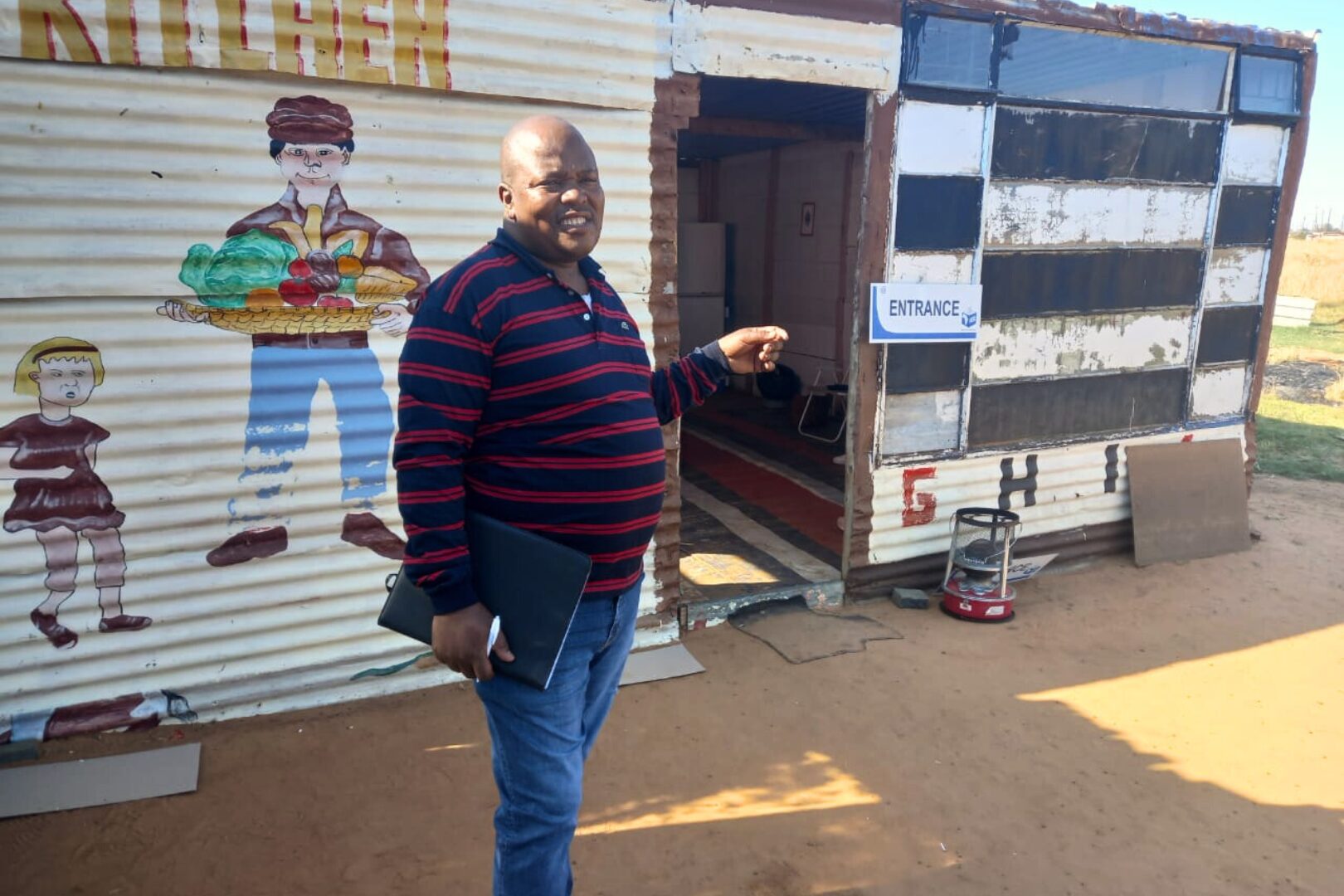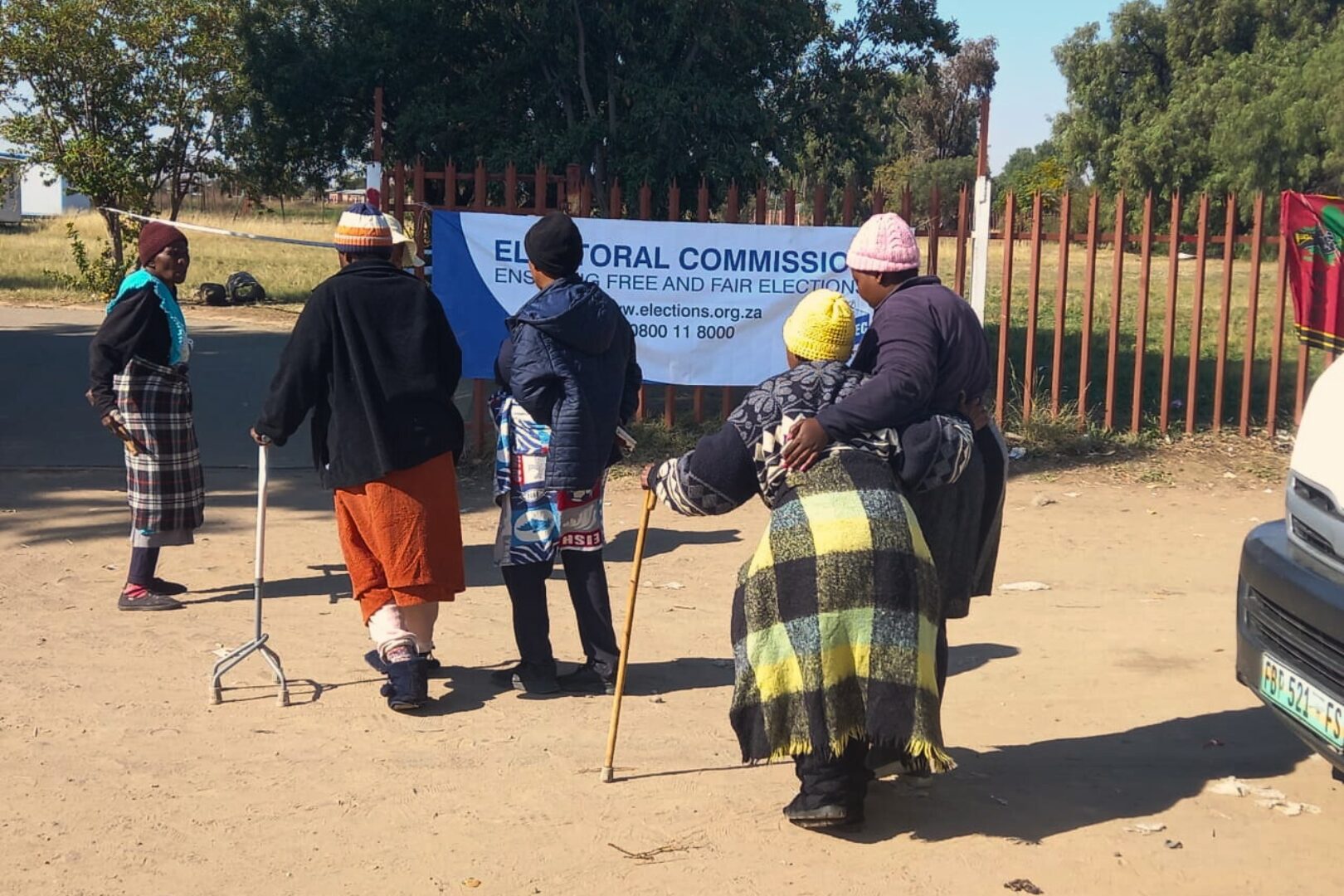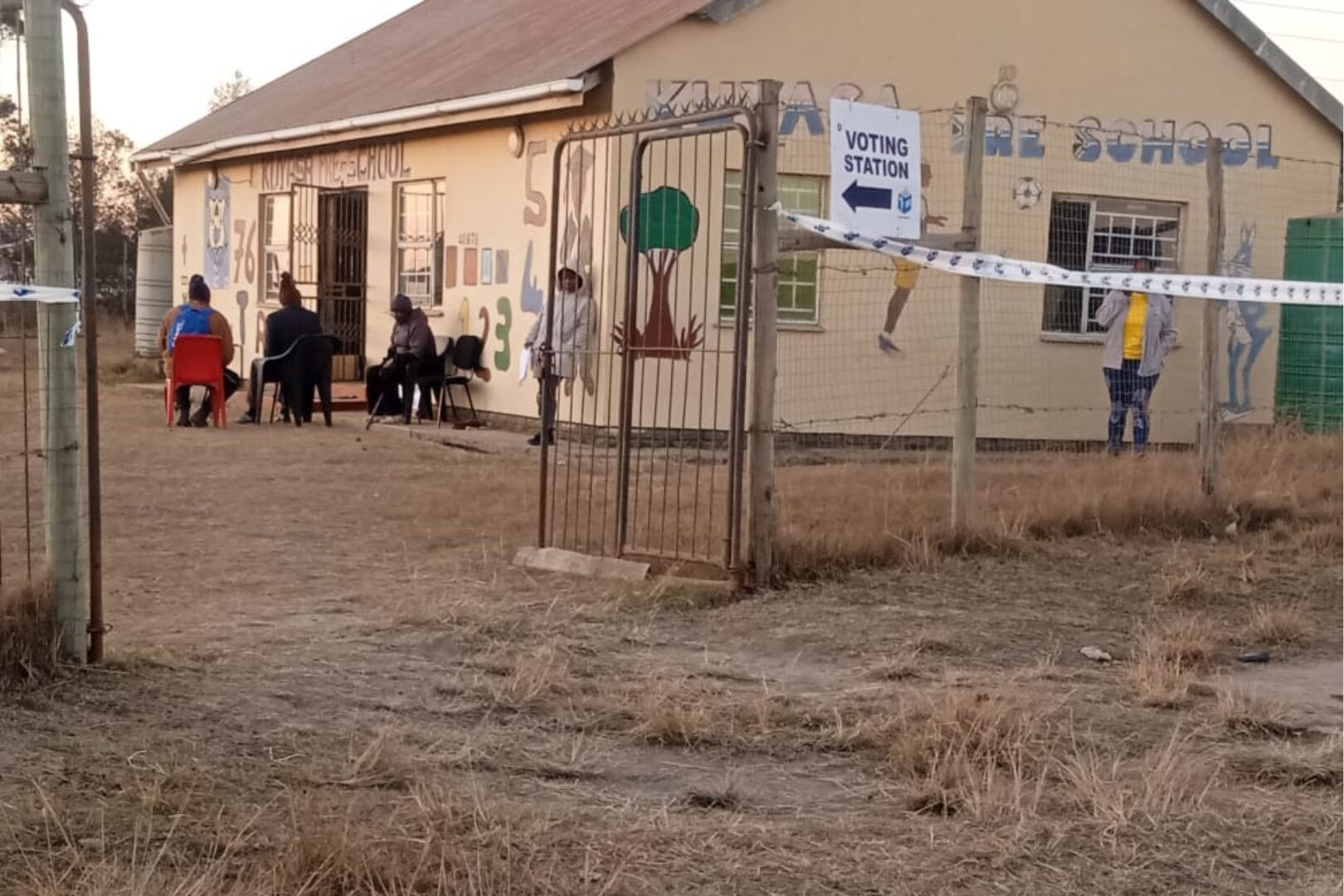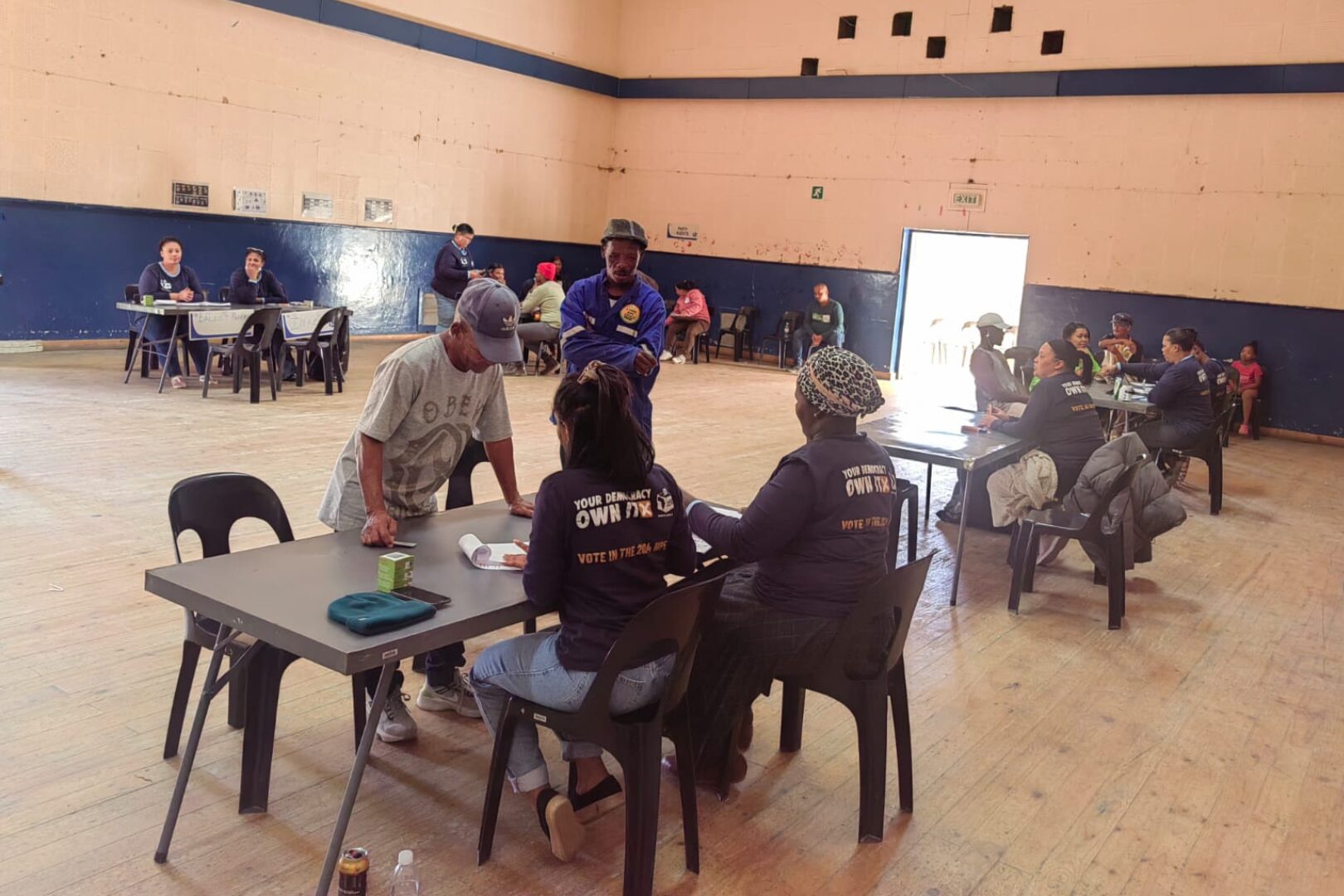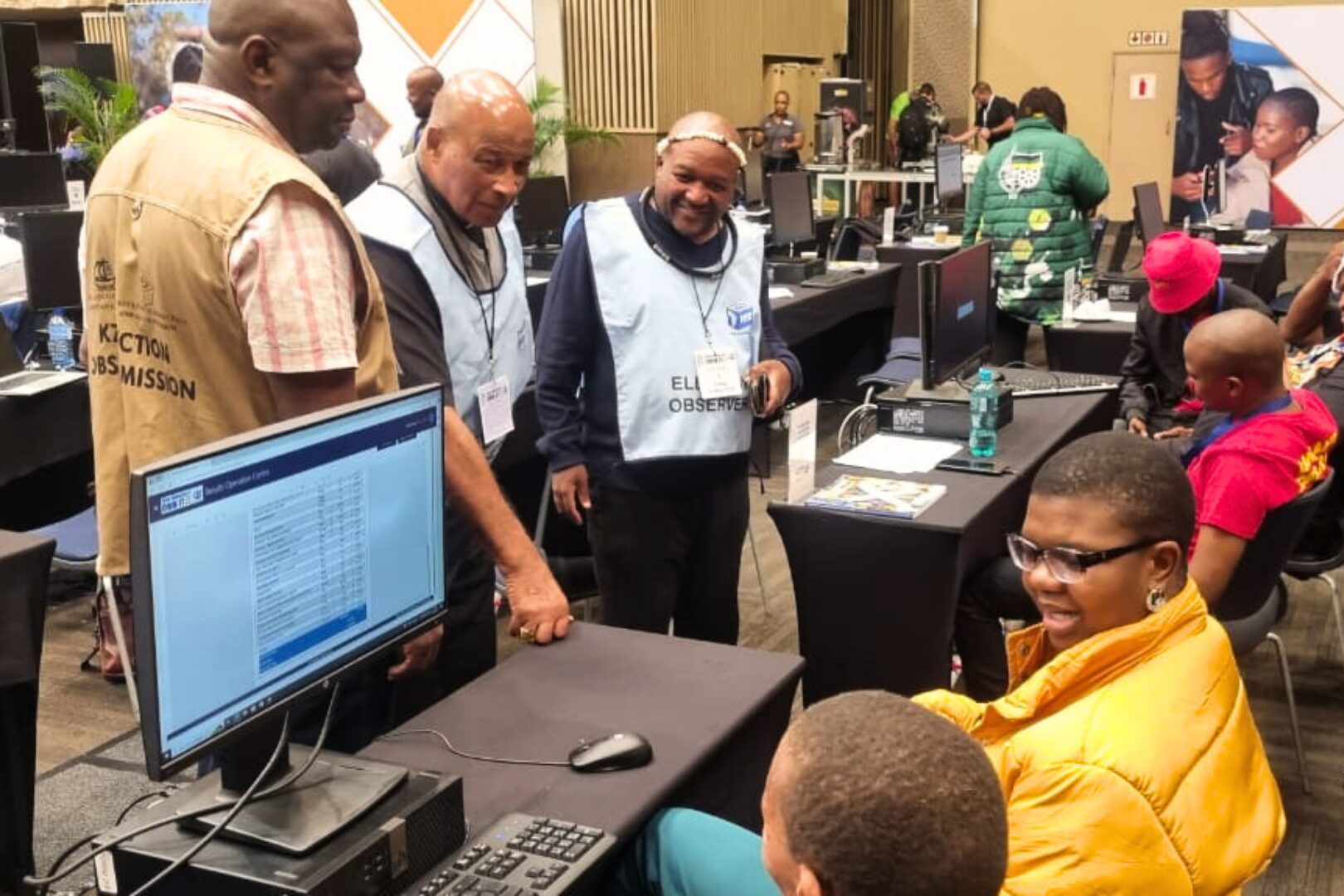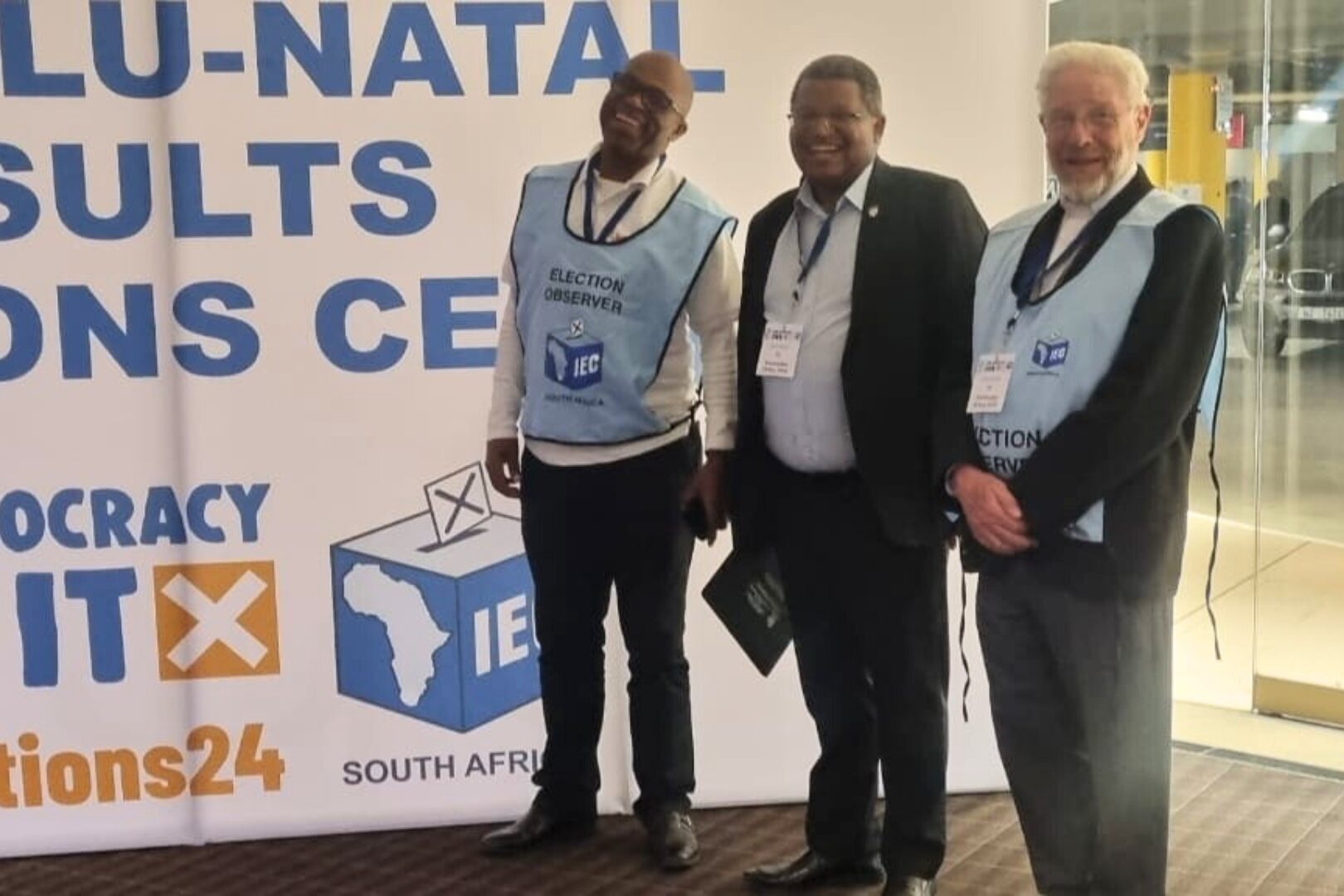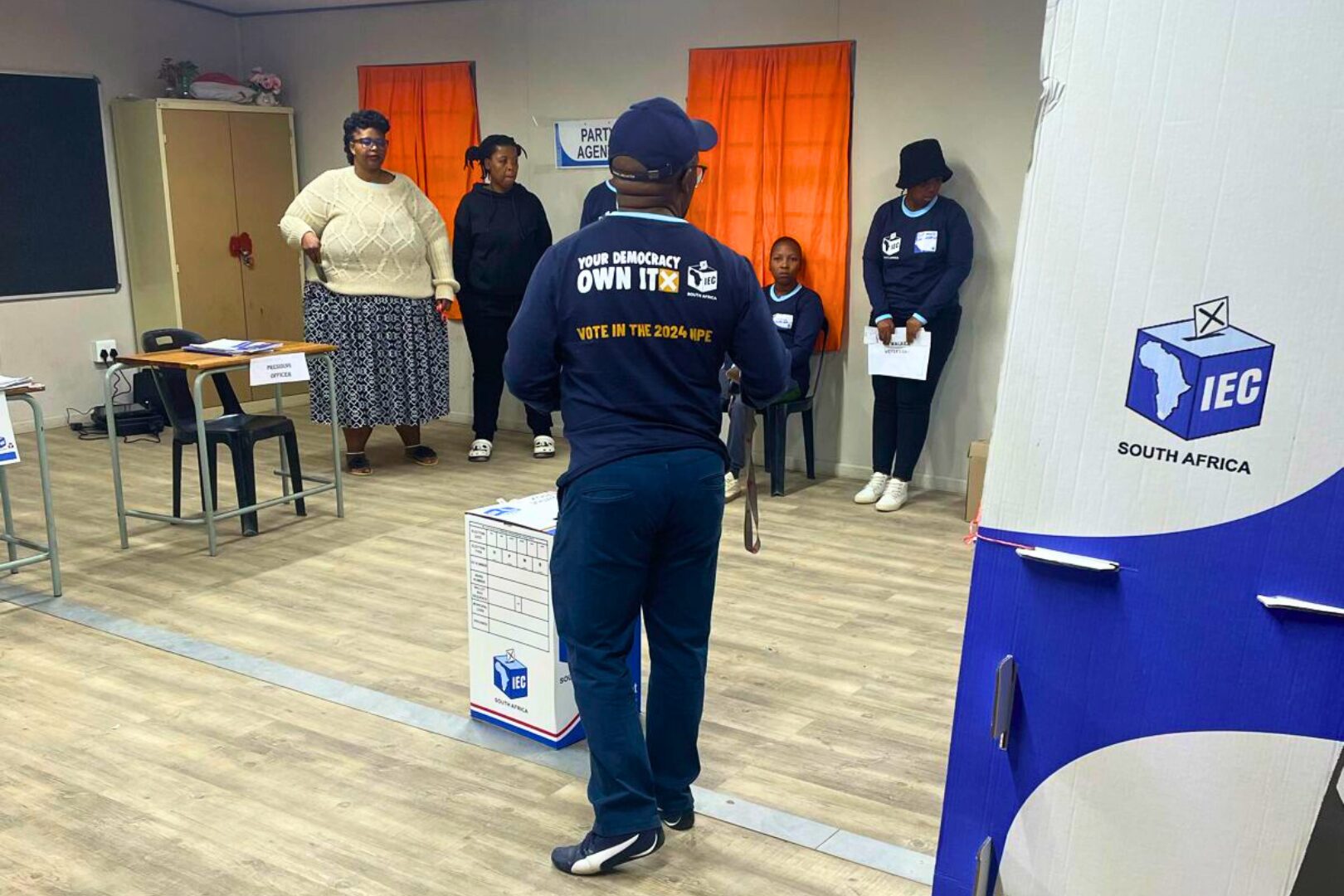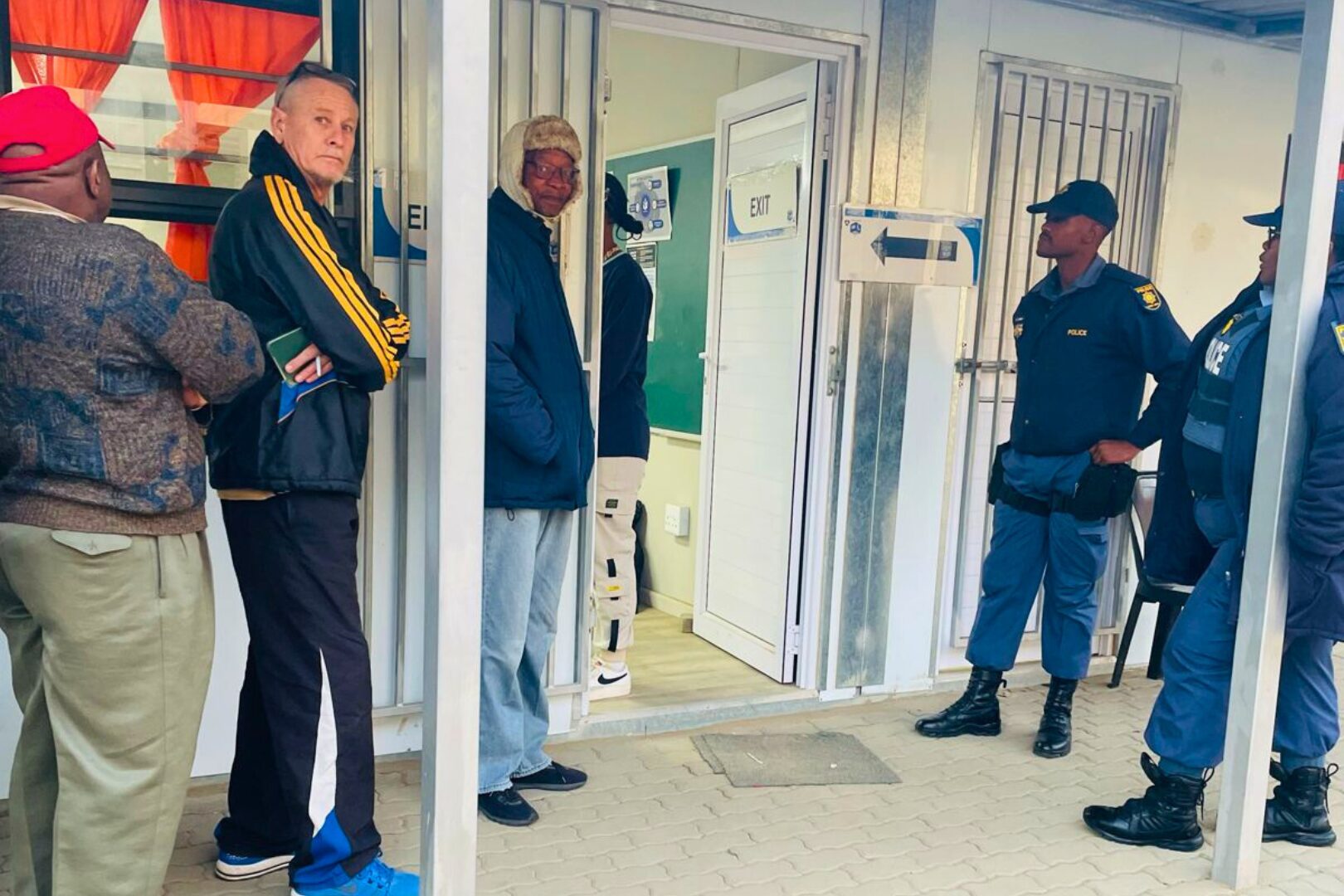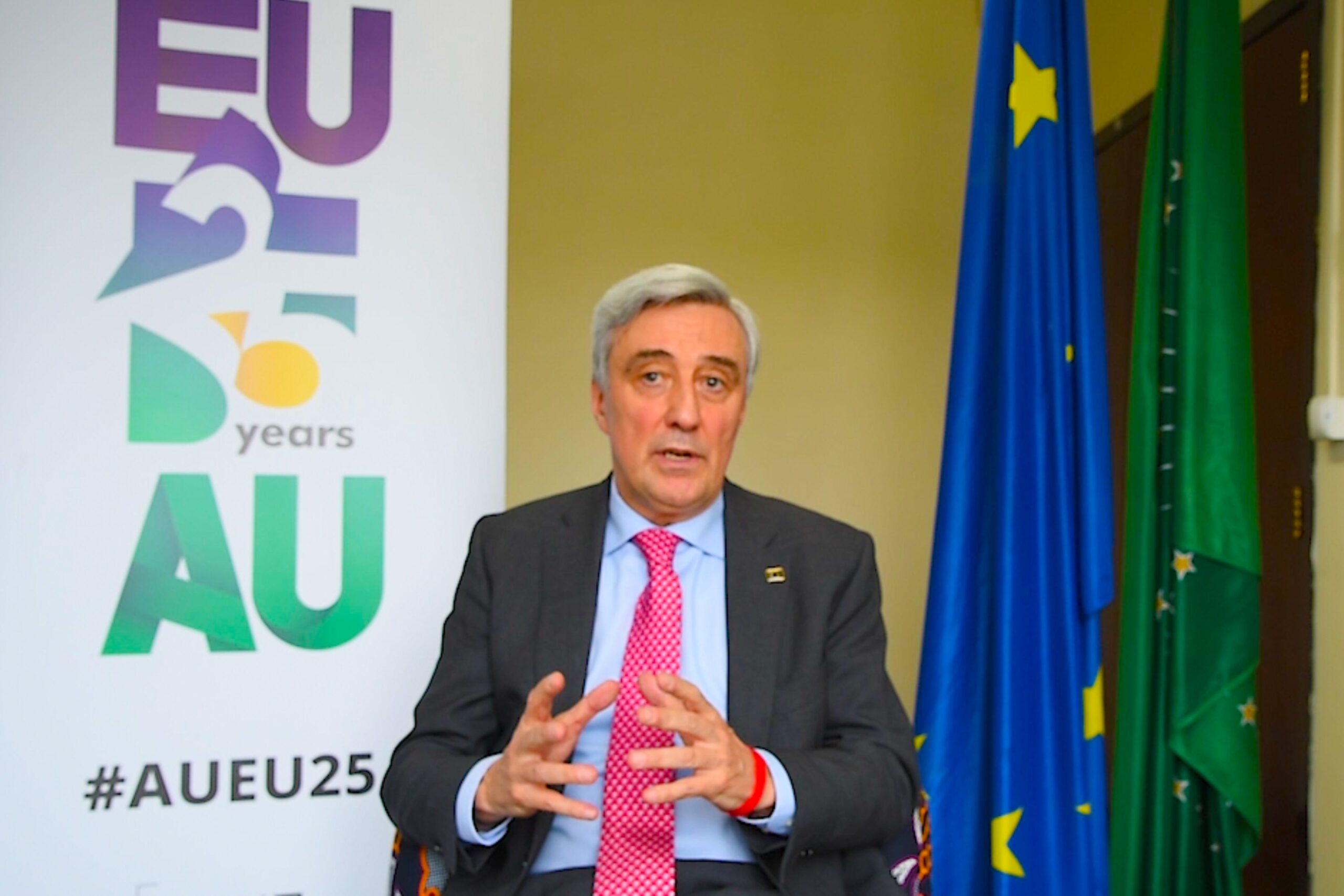On 29 May 2024 South African National and Provincial elections were a dynamic blend of tension and triumph, marked by an intense political competition. Heated debates and rallies fueled civic engagement, with passionate campaigns unfolding across all 9 provinces. Despite challenges like violent strikes against delivery of basic services, political killings; the elections, however, showcased South Africa’s resilience and democratic spirit.
The KwaZulu-Natal Christian Council (KZNCC), member of the Electoral Support Network for Southern Africa (ESN-SA), led a citizen observer mission, supported by the EU co-funded AHEAD Africa project, contributing hugely towards ensuring free and fair elections by observing around 650 identified hotspot areas. Media houses, the police and the deployed national army, the Independent Electoral Commission (IEC) processes, electoral courts, voting stations, and voters were all subject of election observation by KZNCC’s mobile domestic observers.
KZNCC’s citizen/domestic observation mission was preceded by nationwide educational campaigns targeting farms, rural areas, and townships through workshops, drama, music, and social media reaching out to over 5 million people and raising awareness on voter rights, responsibilities, and the importance of peaceful elections. As a result of this extensive outreach, the mission enhanced civic engagement, improved observer skills, and strengthened trust in the electoral process among the public. Key achievements included mobilising and training 400 election observers, deploying early warning mechanisms to prevent violence, and fostering collaboration with stakeholders such as political parties, media, and civil society to promote transparency. Outputs included a consolidated report with recommendations circulated to key stakeholders, training manuals for capacity-building for future observation missions, and advocacy for constitutional amendments and electoral reforms.
Despite challenges such as proliferation of fake election news and misinformation of voters and stakeholders via social media platforms, limited access to technology and the complex coordination of a national initiative, innovative solutions like virtual training and digital reporting tools improved data accuracy and efficiency. Another limitation of KZNCC’s mission was lack of resources to capacitate its citizen observer mission to observe voting by international voters, as well as voting on special vote days.
Lessons learned emphasise the importance of timely planning, inclusive stakeholder engagement, and integrating technology into electoral work. Supported by the Zimbabwe Electoral Support Network (ZESN), ESN-SA and institutions like the African Union, this peer collaboration with provincial and international observer groups emphasised strategic coordination, enriched deployment methodologies and the sharing of best practices. These partnerships and collaborations helped KZNCC and its networks refine its deployment strategies, ensuring that election monitors were strategically placed in areas needing the most oversight. This collaboration also promoted shared accountability and more effective election monitoring by pooling resources and expertise.
As suitable to KZNCC’s context, a central national hub/situation room, staffed by a technical team of 5 members specialised in gender, mediation, politics, law, media and elections, as well as by 4 national leaders, representing faith, traditional, business and academic sectors, provided real-time support intervening in practical urgent problems as requested by field mobile-election observers.
The key areas of focus for election domestic observers included: (i) Electoral Environment and Security, reporting on the overall political climate, including political killings, violent protests, and ensuring hotspots were identified and adequately managed to prevent electoral violence and intimidation, (ii) Electoral process and integrity, observing the conduct at polling stations, voter access, ballot handling, and adherence to IEC regulations to ensure a free, fair, and transparent electoral process and (iii) Observing Voter participation and rights, ensuring voters could cast their votes freely, without coercion or discrimination, while noting turnout levels, accessibility for marginalised groups, and any incidents affecting voter confidence in targeted areas. Issues raised by observers that require follow-up ahead of the 2026 Local Government Elections include: improving voter registration, promoting electronic voting, ensuring political party funding transparency, and addressing perceived conflicts of interest in the Electoral Management Board (EMB) regarding observer accreditation. Recommendations highlighted the need for improved digital tools, enhanced security measures such as drone monitoring, and expanded voter education initiatives, paving the way for more transparent, credible, and peaceful elections.
The 2024 elections showcased South Africa’s growing commitment to democratic principles, with KZNCC’s Domestic Election Observer Mission playing a pivotal role in fostering transparency, peace, and civic engagement. KZNCC’s initiative under the AHEAD Africa project strengthened civic engagement, increased trust in the electoral process, and established frameworks for ongoing reforms to enhance electoral integrity and inclusivity. In conclusion, with the extensive experience, networks, and valuable lessons gained during the 2024 National Government elections, KZNCC and its partners are well-positioned to contribute significantly to the success of the 2026 Local Government Elections. The collaborative efforts, innovative strategies, and refined observer methodologies developed during this period lay a strong foundation for promoting transparency, peace, and inclusivity in future electoral processes. KZNCC remains committed to advancing democratic values and empowering communities across South Africa.
Pictures from KZNCC’s election observation mission during the 2024 South Africa elections
